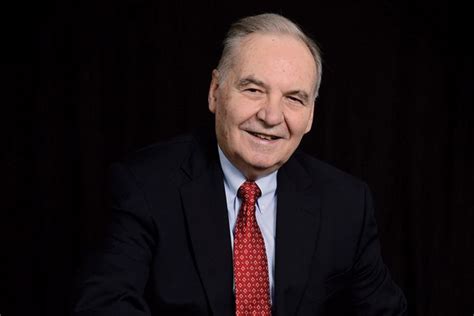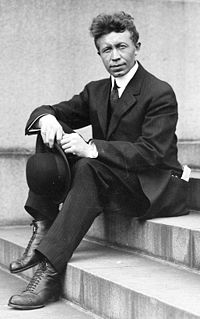A Quote by Andrei Tarkovsky
Art is realistic when it strives to express an ethical ideal. Realism is striving for truth, and truth is always beautiful. Here the aesthetic coincides with the ethical.
Related Quotes
We live in a world full of accidents finally in which on aesthetic principles have a consistency of which we can be sure. Right and wrong we will struggle with forever striving to create and maintain an ethical balance. Right and wrong we will struggle with forever, striving to create and maintain an ethical balance; but the shimmer of summer rain under the street lamps or the great flashing glare of artillery against a night sky – such brutal beauty is beyond dispute.
Individualism is at once an ethical-psychological concept and an ethical-political one. As an ethical-psychological concept, individualism holds that a human being should think and judge independently, respecting nothing more than the sovereignty of his or her mind; thus, it is intimately connected with the concept of autonomy. As an ethical-political concept, individualism upholds the supremacy of individual rights
It cannot be denied that Islam, regarded as an ethical ideal plus a certain kind of polity - by which expression I mean a social structure regulated by a legal system and animated by a specific ethical ideal - has been the chief formative factor in the life-history of the Muslims of India. It has furnished those basic emotions and loyalties which gradually unify scattered individuals and groups, and finally transform them into a well-defined people, possessing a moral consciousness of their own.
There have been a number of philosophers who have reveled in the dismantling of truth. I think they did so with good ethical motives, and for good philosophical reasons. I can see the sense in what they were talking about; the idea that truth is often claimed by elites in order to further certain agendas. They crowd-out alternative perspectives - particularly those of the powerless. But the undermining of truth contributed - in the weird, indirect way that philosophy contributes to the culture - to a rejection of the idea of truth as having any kind of proper meaning at all.
(Because) the notion of absolute truth is difficult to sustain outside the context of religion, ethical conduct is not something we engage in because it is somehow right in itself but because, like ourselves, all others desire to be happy and to avoid suffering. Given that this is a natural disposition, shared by all, it follows that each individual has a right to pursue this goal. Accordingly, I suggest that one of the things which determines whether an act is ethical or not is its effect on others' experience or expectation of happiness.






































